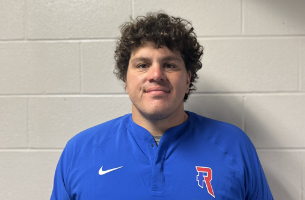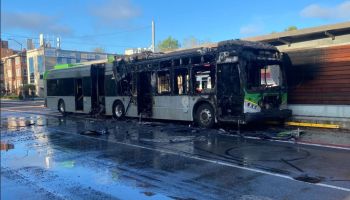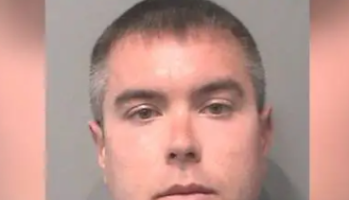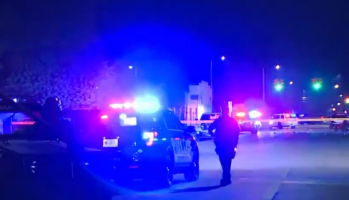STATE HOUSE–Schools will stay closed through April and your tax filing deadline has been extended, as Indiana continues its attempts to cushion the effects of the coronavirus pandemic.
Governor Holcomb says your state taxes won’t be due till July 15, and schools won’t reopen until at least May 1. He’s also canceled this year’s ILEARN and IREAD tests –he says if, “by some miracle,” schools reopen this semester, the time should be spent on instruction, not testing.
The last handful of schools which hadn’t closed yet did so on Wednesday. State school superintendent Jennifer McCormick doesn’t rule out extending the school year.
Holcomb’s also putting off spending 300-million dollars the legislature had approved for university construction projects when the economy still looked rosy. He says seven times as many people have filed for unemployment compared to the same week last year.
Holcomb says the full impact on the state budget won’t be clear for at lesat another month — he says he’ll use the state’s rainy day fund if needed.
Holcomb’s also issued an order barring any new evictions or foreclosures, and directing utilities not to disconnect anyone.while the public health emergency declaration remains in effect, which will be at least through May 5.
One step Holcomb isn’t taking yet is to postpone the May 5 primary, though he says he believes it should be. He says the issue is under discussion with Secretary of State Connie Lawson, who oversees Indiana elections.
At least four congressional candidates have called for a delay in the May primary. Four other states have pushed their primaries into June, while Georgia has postponed next week’s presidential primary and instead plans to combine it with the rest of the state’s primaries May 19.
Office of Management and Budget director Cris Johnston says the state is looking at a plea from the Indiana Restaurant and Lodging Association to suspend sales, food and beverage, and innkeeper’s taxes. For now, those taxes remain in effect. But Holcomb is granting property tax payers a two-month waiver of late fees if they miss the May 11 deadline.
The following is a list of all actions taken by order of Gov. Holcomb on Thursday:
State of Emergency Extension
The Governor will extend the current state of emergency an additional 30 days when it expires on April 5.
K-12 schools
All K-12 public schools will remain closed until May 1. Non-public schools are also ordered closed. This date may be revised to extend through the end of the 2019-2020 school year if circumstances warrant.
All-state mandated assessments will be canceled for the current academic year. The governor has contacted U.S. Secretary of Education Betsy DeVos to share the state’s plan and also has asked the Superintendent of Public Instruction Dr. Jennifer McCormick to pursue any federal waivers needed to cancel the requirements for accountability, chronic absenteeism and state-mandated assessments.
Economy
The state of Indiana will align with the federal government to delay state income tax payments from April 15 to July 15. The U.S. Treasury extended the deadline to pay federal income tax by 90 days.
Penalties will be waived for 60 days for property tax paid after May 11. The state will work with counties that may experience cash flow stress because of the delay.
The state will not immediately move forward with using $300 million in reserves to pay for several capital projects approved in the just-concluded legislative session and instead maintain flexibility to utilize the funds as needed for relief efforts and to maintain current services.
The state will consider using bonding authority to move forward with the just-approved capital projects.
Providers of essential utility services such as gas and electric, broadband, telecom, water and wastewater services are prohibited from discontinuing service to any customer during the public health emergency.
The state’s application to the U.S. Small Business Administration (SBA) was approved on Wednesday. This program provides targeted, low-interest loans of up to $2 million to help small businesses and nonprofits overcome the temporary loss of revenue as a result of coronavirus. See more at SBA.gov/Disaster.
Unemployment Insurance Benefits
The state will interpret Indiana’s unemployment laws to the broadest extent possible to cover Hoosiers who are out of work because of COVID-19.
Benefits will be paid to individuals who file their initial unemployment claims late.
The Department of Workforce Development will allow individuals to continue to accrue unemployment eligibility if they take work leave because of COVID-19.
DWD will seek federal authorization to provide unemployment benefits for those who are not otherwise eligible for unemployment, such individuals who have recently started a job.
For employers, DWD will not assess certain experience rate penalties because of employees who receive unemployment benefits because of COVID-19.
Housing
No residential eviction proceedings or foreclosure actions may be initiated during the public health emergency. This does not relieve the individual of obligations to pay rent or mortgage payments.
All public housing authorities are requested to extend deadlines for housing assistance recipients and required documentation to show eligibility for housing programs.
The Indiana Department of Financial Institutions and Indiana Community Housing Development Authority are required to work with financial institutions to identify tools to help promote housing stability.
Social Services
Participants in the Healthy Indiana Plan (HIP) and the Children’s Health Insurance Program are not required to make premium payments.
Job search requirements are waived for those applying for Temporary Assistance to Needy Families (TANF) benefits.
The Family and Social Services Administration will seek a federal waiver to extend renewals for existing Medicaid and HIP recipients.
Telehealth services for mental health, substance use disorder and prescribing for Medicaid covered services will be expanded.
Insurance
The commissioner of the state Department of Insurance will request that insurers institute a 60-day moratorium on policy cancellations for non-payment of premiums.
This does not suspend a policyholder’s obligation to make payments.
The commissioner will ask health insurers to cover COVID-19 testing without requiring prior authorization.
The commissioner will request that health insurers not increase prices or coverage costs that involve medical care for COVID-19.
Bureau of Motor Vehicles
To limit the number of in-branch transactions, late fees will be waived for several driver’s licenses and identification card renewals, vehicle registrations, titles, and certain other transactions.
Other operational changes in branches are being instituted to provide for the safety of employees and customers in branches, such as spacing between terminals and limiting the number of customers in the lobby.
Veterans
Requirements have been relaxed for veterans to qualify for awards from the Military Family Relief Fund.
Awards in excess of $2,500 may be approved by the IDVA director during the public health emergency.
Health and Professional Licensing
Mental health professionals are permitted to practice via telemedicine.
Advance Practice Registered Nurses are allowed to provide services in multiple locations.
The state health commissioner may waive requirements of the nursing home certificate of need statute to respond to COVID-19 issues for long-term care facilities.













